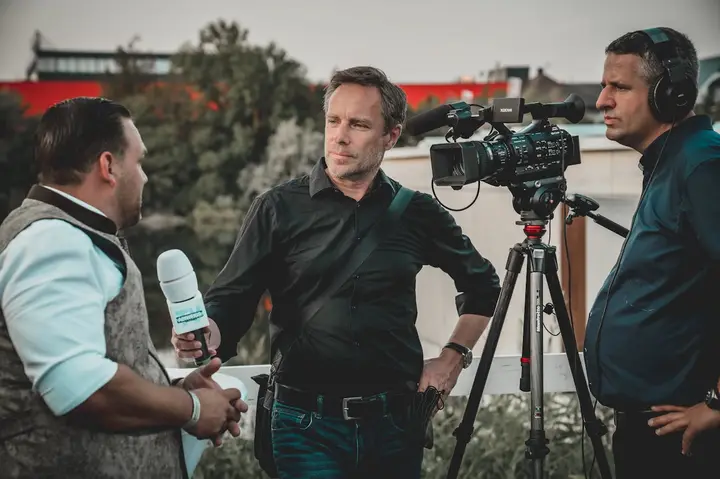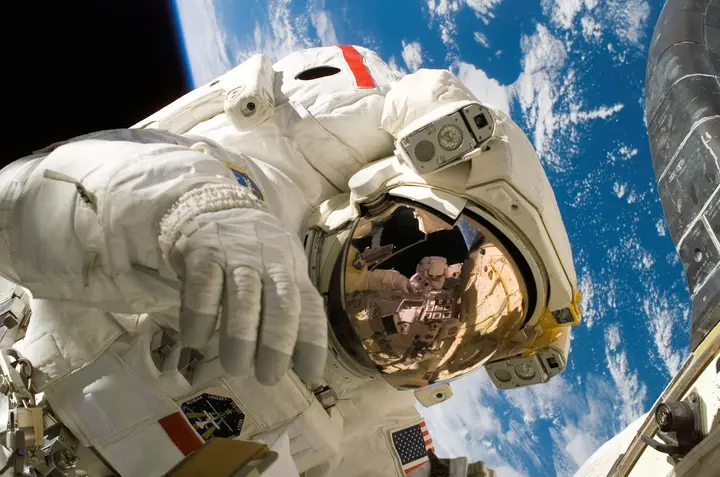Paris 2024 Olympics: A Leap Towards Sustainability or Just Green Washing?
Posted by: sunxin in News 3 months, 3 weeks ago
The City of Light is ready to shine on the global stage once again as Paris gears up for the grand opening ceremony of the Olympic Games on Friday. Amidst the fanfare, France has taken a commendable step towards reducing the carbon footprint of this grand sporting spectacle. With minimal new construction and a rejuvenated River Seine, the organizers are aiming to make Paris 2024 the most sustainable Olympics to date. But is it enough to earn the title of 'greenest games'?
The Passing of the Torch: Biden's Decision and Its Impact on the Presidential Race
Posted by: sunxin in News 3 months, 3 weeks ago
In an unexpected turn of events, President Joe Biden took to the Oval Office to address the nation, explaining his decision to step aside and allow Kamala Harris to take the lead in the presidential race. This move has sent ripples through the political landscape, raising questions and sparking conversations across the country. Let's delve into the implications of this significant shift.
The Contested Count of Gaza's Casualties: A Deep Dive into the Numbers
Posted by: sunxin in News 3 months, 3 weeks ago
The war in Gaza has sparked a fiery debate, not just over its political implications, but over the very count of its human cost. At the heart of this controversy is the Hamas-run Health Ministry, the sole institution providing detailed death tolls. But as the conflict rages on, these figures have become more contentious, raising questions about their reliability and the methodology behind them.
Climate Activists Disrupt Germany's Busiest Airport: A Wake-Up Call for Change
Posted by: sunxin in News 3 months, 3 weeks ago
Have you ever wondered what it would take to halt one of the world's busiest airports in its tracks? This week, climate activists provided a dramatic answer.
The Aftermath of Typhoon CI: A looming Ecological Disaster in Manila Bay
Posted by: sunxin in News 3 months, 3 weeks ago
Typhoons are no strangers to the Pacific region, yet the recent Typhoon CI has left a path of destruction that is both alarming and thought-provoking. Amidst the chaos, a Philippine tanker's unfortunate encounter with towering waves in Manila Bay has unleashed a new crisis—a massive oil spill threatening the heart of the capital, Manila.
The Shifting Sands of Global Leadership: Biden's Challenge and the Future Landscape
Posted by: sunxin in News 3 months, 3 weeks ago
Have President Biden's policies successfully restored America's leadership on the world stage? This question, posed amidst the complexities of international relations, invites a nuanced exploration. Let's delve into the intricacies of this debate and consider the broader implications for global stability and America's role in it.
The Cyber Threat Looming Over Us: North Korea's Digital Intrusions
Posted by: sunxin in News 3 months, 3 weeks ago
In an age where information is power, the unseen battlefield of cyberspace is becoming increasingly volatile. Recent headlines have sent shockwaves through the global community as U.S. prosecutors charged a North Korean national with attempted cyber attacks on government and military installations, as well as private corporations. These attacks, according to the U.S., are part of North Korea's relentless pursuit of nuclear program advancement. But what does this mean for our national security and the stability of the region?
A Call for Complexity and Compassion: Kamala Harris and the Path Forward in Gaza
Posted by: sunxin in News 3 months, 3 weeks ago
In a recent meeting at the White House, US Vice President Kamala Harris engaged in talks with Israeli Prime Minister Benjamin Netanyahu, addressing the pressing issue of the conflict in Gaza. Harris, positioned as a presumptive Democratic nominee for president, urged Netanyahu to consider a truce in exchange for the release of hostages held by Hamas. This dialogue, which has been a focal point of international attention, raises critical questions about the nature of the conflict and the path to resolution.
Can India Capitalize on Its Demographic Dividend Before It Grows Old?
Posted by: sunxin in News 3 months, 3 weeks ago
India stands at a unique crossroads, a nation brimming with youthful energy and the potential for exponential growth. But with this demographic dividend comes a critical challenge: can India create enough jobs to harness this potential before the window closes? In this article, we explore the intricacies of India's job market, the government's budgetary moves, and the path forward to ensure that India not only grows rich but does so before it grows old.
The Aftermath of Typhoon Gami: A Growing Environmental Crisis in Asia
Posted by: sunxin in News 3 months, 3 weeks ago
Typhoon Gami's relentless fury has left a path of destruction, not just in China but across Taiwan and the Philippines as well. Amidst the chaos, an oil tanker sank off Manila, causing a significant oil spill that stretches for several kilometers. This disaster raises critical questions about environmental safety and the urgent need for accountability in the face of climate change.
Recent Posts
- Tragedy Unfolds: The Heartbreaking Attack at Mogadishu's Leo Beach
- Clash in Liverpool: The Battle Between Anti-Racism and Anti-Immigration
- Tragedy Unfolds: Kerala's Heartbreaking Battle with Landslides
- Tragedy in Tarim: A Glimpse into the Aftermath of Israeli Aerial Strikes
- The Tragic Attack on Hamama School: A Story of Innocence Lost in Shik Radwan
Categories
- Official Announcement (3)
- News (1653)
- 新闻 (28)
- Technology (300)
- 科技 (235)
- 科普 (418)
- Science (409)
- 公开课 (180)
- MOOC (183)
- Business (36)
- 揭秘 (143)
- Mysteries (124)



